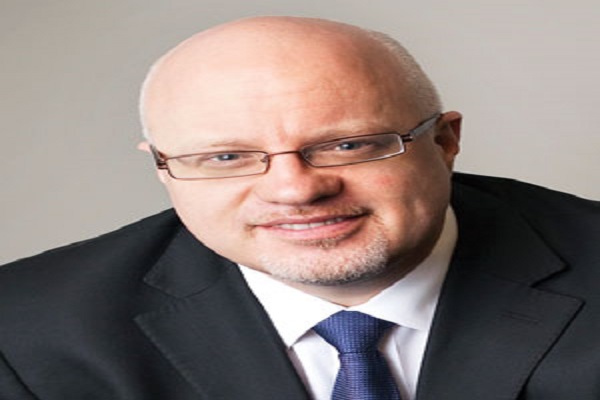
An Australian technology futurist, international best-selling author and the Founder of the world’s first direct mobile-only bank Moven, previously known as Movenbank, Brett King dwells upon the opportunities for mobile phones as effective banking tools in India during a conversation with Veena Kurup of ENN
You launched a reformed approach towards the banking and financial sector through your books ‘Bank 2.0’ and Bank ‘3.0’, which focus on shifting technologies, customer behaviour and new banking models. Considering all this, where do you see India on a global scale?
India, I think, is still at the Bank 2.0 stage, as the country is still in its emerging phase. While Bank 2.0 is about multi-channel banking, Bank 3.0 focused on the fact that customer can do banking without actually visiting the banks. The situation in India, as I see, is on an evolutionary path, wherein the awareness and expectation level of the masses is on a constant rise. Yes, India is witnessing a technical transformation, but the real challenge is on the time involved in actual adoption and implementation. When we look at the financial inclusion initiatives in the developing economies as a whole, the usage of mobile phones has grown phenomenally and much faster than the establishment of any physical banking networks.

What is your outlook on the acceptance of mobile phones as a tool for delivering financial services by the Indian banks?
The acceptance of mobile phones as a mode to provide financial services is still poor among the Indian banks. This is prnly for the westerimarily due to the false belief that Smart-phone banking or mobile banking is suitable on or developed economies, and is not applicable in India or Asian regions. India, however, is one of the fastest growing economies in the world in the adoption of Smart-phones. Hence, the situation is considerably changing and will be dynamically on a technical shift in the years to come.

Also Read: Financial Inclusion It’s All About IT
How prospective are such opportunities for the telecom industry?
Telecom providers will play an active role, especially in establishing distribution networks, Know Your Customer (KYC) initiatives, data plans etc. The participation of telecom companies can help in bundling banking services in the modes which are yet unexplored. The platform opens inter-dependent opportunities for the banks and telecoms. While telecoms need the banks to venture into new business opportunities, banks need telecoms to establish close customer relationship networks. I believe that financial inclusion will offer robust opportunities to establish and expand for banks and telecoms. However, the banks and telecoms should not consider themselves as competitors while executing such initiatives and rather see it as co-operative opportunities ahead.
Share with us your views about the role of a regulator in encouraging these prospects?
Regulators recognise and monitor financial inclusion, but a more focussed approach for achieving the desired output is required. The regulators need to understand that mobile is the only technology which can efficiently assist in achieving the core objective of financial inclusion. The regulators here need to be more adaptable to the advantages of utilising such technologies, especially for the low-value bank accounts. In addition, clear guidelines need to be issued to ensure that opening a bank account through a mobile phone is acceptable. All these measures have to be positively adopted and implemented by the regulator. Thankfully, India today seems moving on this path gradually.
“Regulators need to understand that mobile is the only technology which can efficiently assist in achieving the core objective of financial inclusion…they need to be more adaptable to utilising such technologies, especially for the low-value bank accounts”
Which according to you is the fastest adopting economy to such technical advancements of all the emerging markets?
China has the fastest growing mobile payment networks in the world today and the Chinese banks are quite progressive about utilising such technologies. Also, the approach from the Chinese government towards promoting such initiatives and encouraging such channels of financial services is much appreciable.
Also Read: Financial Inclusion Vital for Emerging Economies
The case of Kenya, which embraced technological advancements for adopting m-Pesa services, is a perfect example of practising a successful e-banking model. Before the introduction of m-Pesa, only about 20 percent of Kenyan population had a bank account. But today, with m-Pesa the index has escalated to 60 percent of the Kenyan population having a mobile m-Pesa money account.
Can we expect Moven to venture into India soon?
India is definitely a prospective economy for Moven, but the country is not yet fully ready for us. However, we expect that by 2016, with the acceptance of universal bank accounts, positive RBI mandates, payment banking licences and demand for advanced banking technologies in place, Moven can expand its base in India. We will be looking forward to a banking partner who can help us in establishing our presence in the country.
Be a part of Elets Collaborative Initiatives. Join Us for Upcoming Events and explore business opportunities. Like us on Facebook , connect with us on LinkedIn and follow us on Twitter, Instagram.












